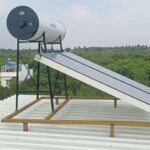With so many water filtration options on the market, choosing the right system can feel overwhelming. The right filtration solution will provide safe, clean water for you and your family and protect your home’s plumbing and appliances. Here’s how you can decide on the best water filtration system to meet your household needs.
Step 1: Understand Your Water Quality
Start by understanding what’s in your water. If you’re on a municipal water supply, your local provider typically issues an annual water quality report detailing contaminants. For those using well water, it’s wise to have the water tested for bacteria, heavy metals, sediment, and other contaminants. Knowing your water’s specific impurities helps determine which filtration system will be the most effective.
Step 2: Identify the Right Type of Filtration System
There are several main types of water filtration systems, each designed to handle specific contaminants or needs:
- Activated Carbon Filters: Ideal for removing chlorine, bad tastes, and odors, making them popular for city water. However, these filters don’t usually handle heavy metals or bacteria.
- Reverse Osmosis (RO) Systems: These systems use a semi-permeable membrane to remove a range of contaminants, including lead, bacteria, and even some viruses. RO systems are great for households with high contaminant levels but do require regular maintenance.
- UV Purification Systems: UV systems use ultraviolet light to kill bacteria and viruses, making them ideal for well water. However, they do not remove chemical contaminants, so they’re often combined with other types of filters.
- Whole-House Filters: Whole-house systems treat all the water entering your home, addressing issues like sediment and chlorine, and are effective for large households or homes with hard water.
Step 3: Determine Your Household’s Needs
Consider how you’ll use filtered water in your home. Ask yourself these questions to determine what’s best for your household:
- Is drinking water the priority? If yes, a dedicated drinking water system like a reverse osmosis system or an under-sink activated carbon filter might be best.
- Do you want filtered water throughout your home? A whole-house system is a smart choice if you’re looking to protect your appliances, improve water quality for showers, and ensure overall water purity.
- What’s your budget? Some systems, like RO systems, may require higher upfront costs and regular maintenance, while activated carbon filters are more affordable but may not be as comprehensive.
Step 4: Consider Maintenance and Installation Requirements
Water filtration systems vary in maintenance needs. Countertop or under-sink filters are often easy to install and maintain on your own, while whole-house and reverse osmosis systems may require professional installation and regular maintenance. Be sure to consider the cost of replacement filters, as this can affect your overall expense.
Step 5: Look for Certification Standards
Make sure the filtration system you choose is certified by reputable organizations like NSF International (National Sanitation Foundation). Certifications ensure that the system has been tested and proven effective against specific contaminants.
Choosing the Right Filtration System – Let Vandana Agencies Help!
Finding the perfect water filtration system doesn’t have to be complicated. Vandana Agencies offers expert guidance and affordable solutions tailored to your water quality needs and budget. Our team can help you select and install the best system for your home, ensuring safe and clean water for you and your family.
Ready to make the switch to purified water? Contact us today for an affordable, effective water softening and filtration solution that suits your lifestyle. Clean water is just a call away!




